Letitia James Demands Trump Pay Up in Civil Fraud Case, With Higher Court Set to Hear Appeal in September
Trump is fighting his conviction, and $464 million judgment, levied on him by a single judge, Arthur Engoron.

A New York appeals court is set to hear oral arguments on September 26 over whether President Trump is guilty of business fraud and must pay the $464 million judgment in his civil fraud case. In an appeal brief filed Wednesday evening, New York’s attorney general, Letitia James, made clear that she wants the 45th president and his companies to pay up.
“For years, the Trump Organization and its top executives engaged in a fraudulent and illegal scheme to misleadingly inflate the net worth of defendant Donald J. Trump, as reflected in his personal financial statements, by as much as $2.2 billion a year,” lawyers for Ms. James wrote in their filing.
“Through their misconduct, defendants derived significant economic benefits they otherwise could not have obtained, including over $360 million in illegal profits,” the attorney general’s office added.
Ms. James, who is an elected Democrat and made history as the first Black woman to serve as New York’s attorney general, campaigned on a promise to “get Trump.” Her office began investigating his businesses in 2019. She filed her lawsuit in 2022, once Trump had left office. Last November the case went to trial at New York Supreme Court.
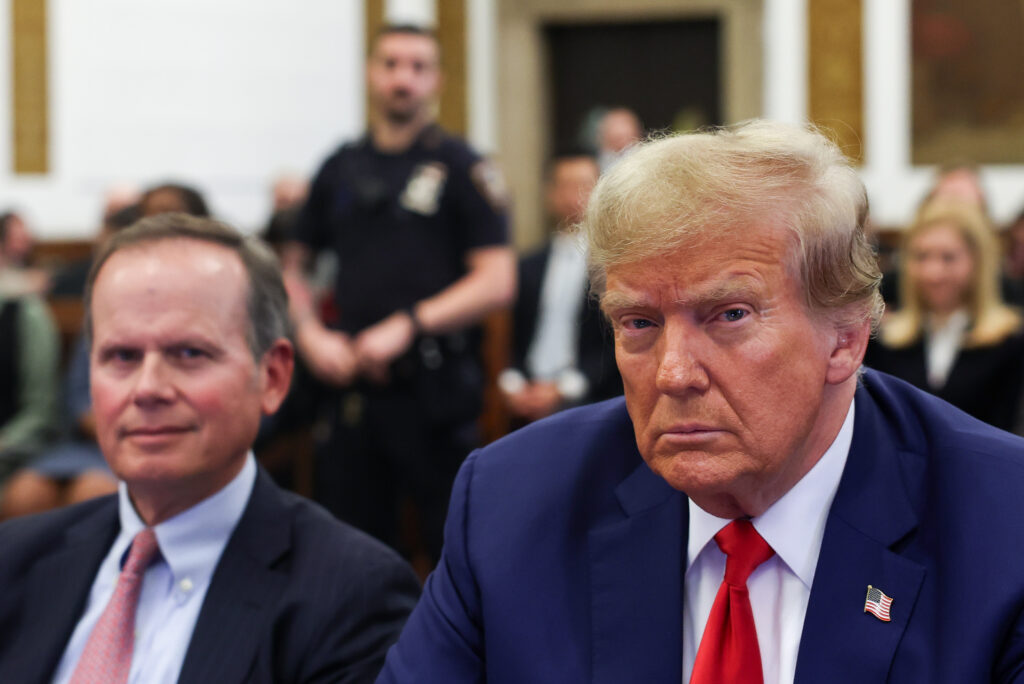
The former president, his two adult sons, Don Jr. and Eric, as well as two veteran Trump Organization employees, the former chief financial officer, Allen Weisselberg, and former controller, Jeff McConney, were accused of having inflated Trump’s net worth and various assets and falsified financial statements in a decades-long scheme to gain better interest rates from banks and more favorable insurance policies.
The presiding judge, Arthur Engoron, found the Trumps guilty before the trial began, ruling against the family business in what is called a pre-trial summary judgment. The legal practice is not uncommon and allows the judge to rule based on arguments submitted by the prosecution and the defense, thus saving the courts significant time and expense by limiting the scope of the case or disposing of it entirely.
In Trump’s case, the judge only ruled partially. The trial was held to determine, among other things, how much money Trump would owe New York state. There was no jury. Some experts have said that Trump’s lawyers could have tried to litigate and fight for a jury, while defense attorney Alina Habba told Fox News that under the law Ms. James used to prosecute Trump, New York executive law § 63(12), “you don’t have a right, an absolute right to a jury.”
The following bench trial, meaning the judge was the sole fact finder, lasted eleven weeks and heard over 40 witnesses, including Trump himself, who took the witness stand to proclaim his innocence. “I did nothing wrong,” Trump said after he was unexpectedly allowed to address the court after three of his attorneys had given their closing arguments.
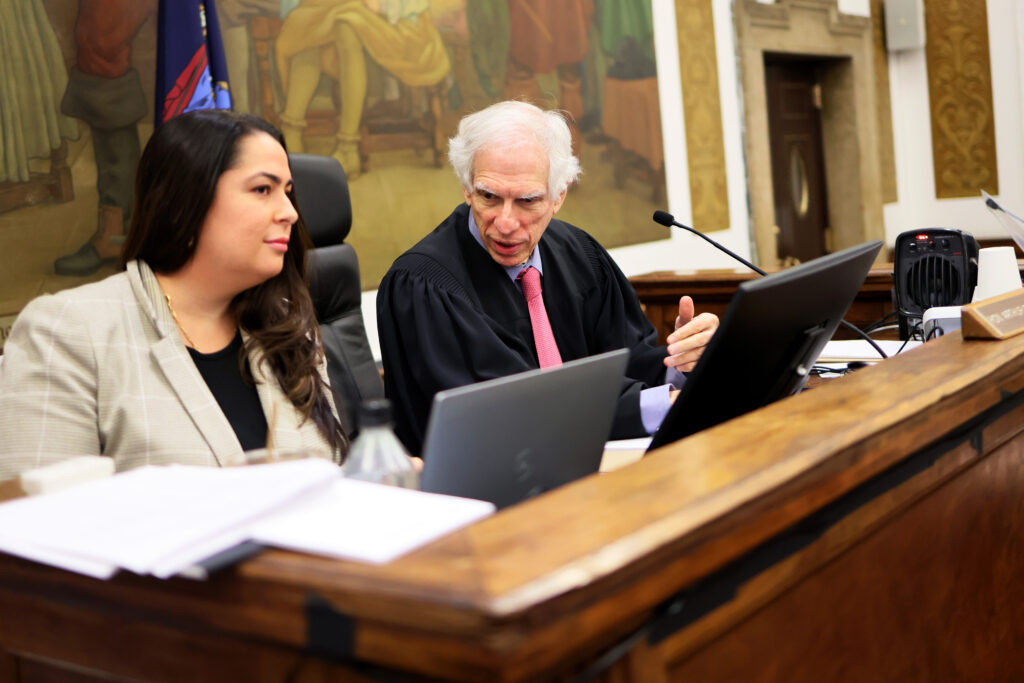
Judge Engoron awarded the state more than $355 million dollars. The judge set interest payments exceeding $100 million. He also ordered that two court-appointed monitors oversee the finances of the Trump Organization for the next three years.
“We have a totally corrupt attorney general,” Trump said during a news conference, after the verdict was published on February 16, at his Mar-a-Lago property at Palm Beach, Florida. He appealed the case with the First Department, a mid level appeals court in New York. His attorneys filed their briefs in July, as the Sun reported.
“Defendants make numerous additional arguments against liability, none of which has merit,” the attorney general struck back on Wednesday, adding that the “core remedial purpose” of the law she used to sue Trump was to “protect the honesty and integrity of commercial marketplaces in New York by stopping fraudulent and illegal practices before they cause financial losses to market participants or broader harms to the public.”
One of Trump’s principal arguments, one that he has repeated throughout his five year battle against Ms. James, is that the alleged “scheme” to defraud produced no victims. None of the banks, none of the insurance companies, nor any of the business partners, either complained or lost any money.
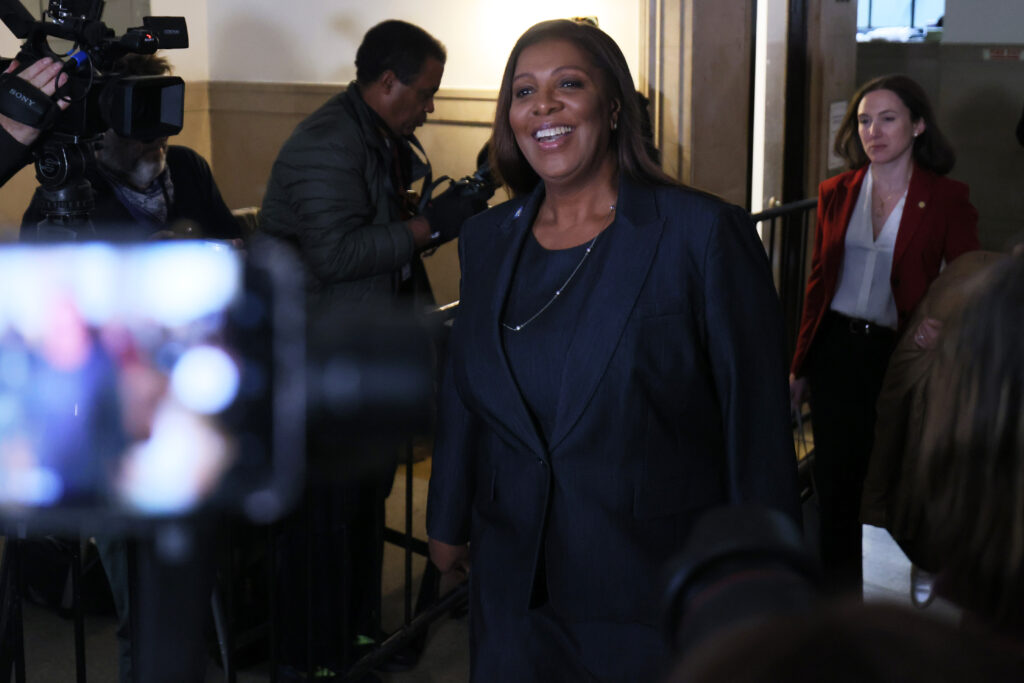
But Ms. James insists that according to New York executive law § 63(12), which was passed in 1956 and gives the attorney general the broad powers to investigate and prosecute cases of alleged civil fraud, does not require her to prove that anyone lost money, writing that “it is well-established that neither reliance nor victims’ losses— which are elements of common-law fraud—is required for § 63(12) fraud or illegality claims …”
In her brief, she strongly defended the evidence which proved Trump’s alleged “deceptive strategies.”
“For example, defendants valued Mr. Trump’s apartment as if its square-footage was triple its actual size;” her attorneys wrote, referring to Trump’s gilded penthouse apartment at his iconic Trump Tower. Another example they cited were the rent regulated units at Trump’s property at 40 Wall Street in Lower Manhattan, saying Trump “valued rent regulated apartments as if they were unregulated …”
Another key aspect of the case is the statute of limitations, the question whether or not the arguments Ms. James raises are simply too old to be relevant. Trump’s eldest daughter, Ivanka Trump, was originally listed as one of the defendants in the indictment. But she appealed and was taken off the case on the basis that claims against her were untimely. The appeals court recognized that Ms. Trump was not working at the Trump Organization when the company and Ms. James signed a tolling agreement, effectively extending the statute of limitations.
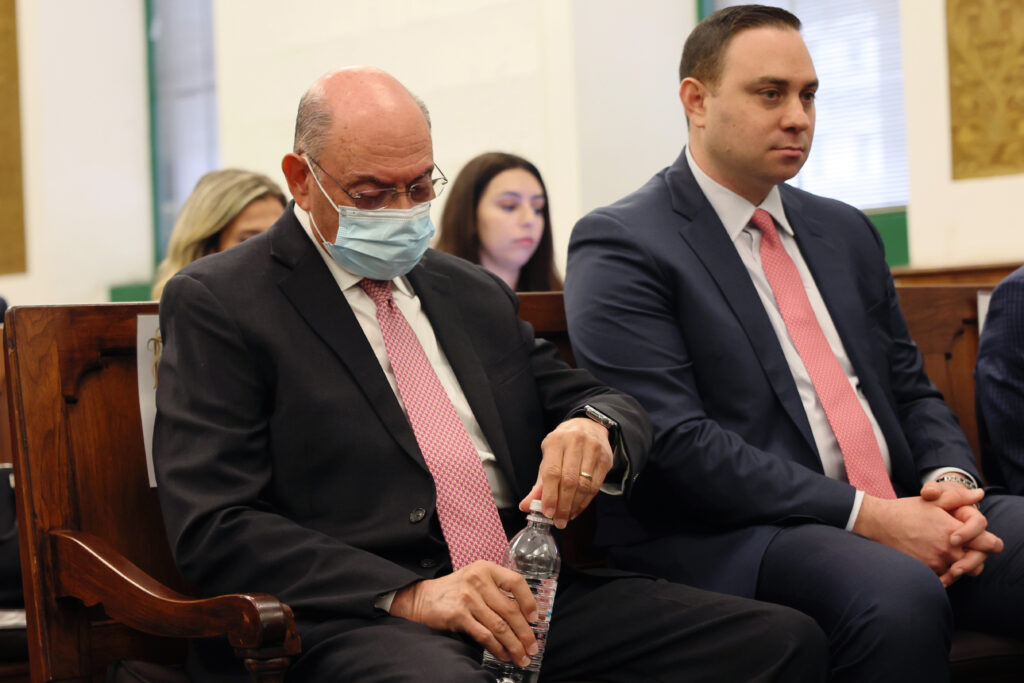
Trump’s defense team argued that this tolling agreement did not actually bind Trump nor his two sons nor his employees, and most importantly not his trust, because the agreement was not actually signed by a trustee, but by Alan Garten, who serves as the executive vice president and chief legal officer at The Trump Organization.
“Tolling agreements are enforced according to their plain terms,” Ms. James pushed back. “A corporate tolling agreement binds the corporation’s affiliates, officers, or directors when the agreement makes plain that it applies to them.” She added that the appeals court had already ruled on this argument, when they removed Ivanka Trump from the lawsuit and allowed the case to go forward against the other defendants.
Trump “indisputably participated in the fraud,” the attorney general’s office wrote, defending the judgment awarded to the state by Judge Engoron.
“Extensive trial evidence, including expert testimony that Supreme Court was entitled to credit, established that $363.8 million reasonably approximated defendants’ illicit profits from their wrongdoing, and defendants failed to satisfy their burden to show otherwise,” prosecutors argued.
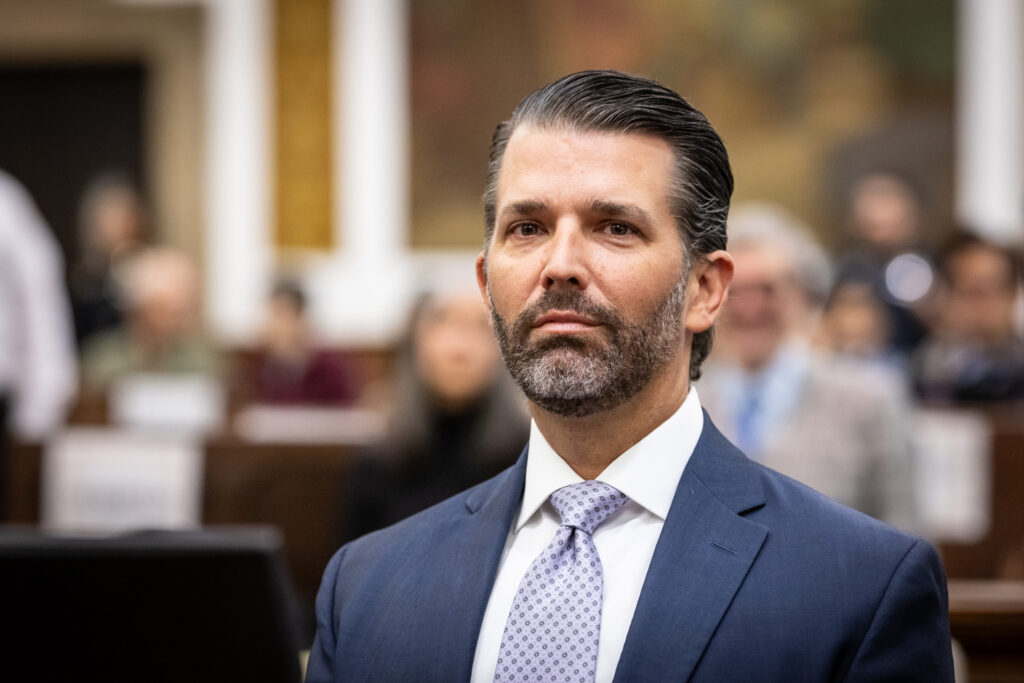
Four days after the staggering verdict, which was unusually large for a privately held company the relatively modest size of the Trump Organization, Ms. James told ABC News’s Aaron Katersky that she would seize Trump’s assets if he did not pay.
“If he does not have funds to pay off the judgment, then we will seek judgment enforcement mechanisms in court, and we will ask the judge to seize his assets,” Ms. James said.
Trump’s defense attorney, Christoper Kise, released a statement saying that he “remains confident the Appellate Division will ultimately correct the innumerable and catastrophic errors made by a trial court untethered to the law or to reality.”
In a significant victory for the 45th president, the appeals court lowered the bond Trump had to secure in order to appeal the case at the last minute, from the awarded $464-plus million judgment (which included the $100 plus million interest rates) to $175 million, preventing Ms. James from seizing Trump’s assets.
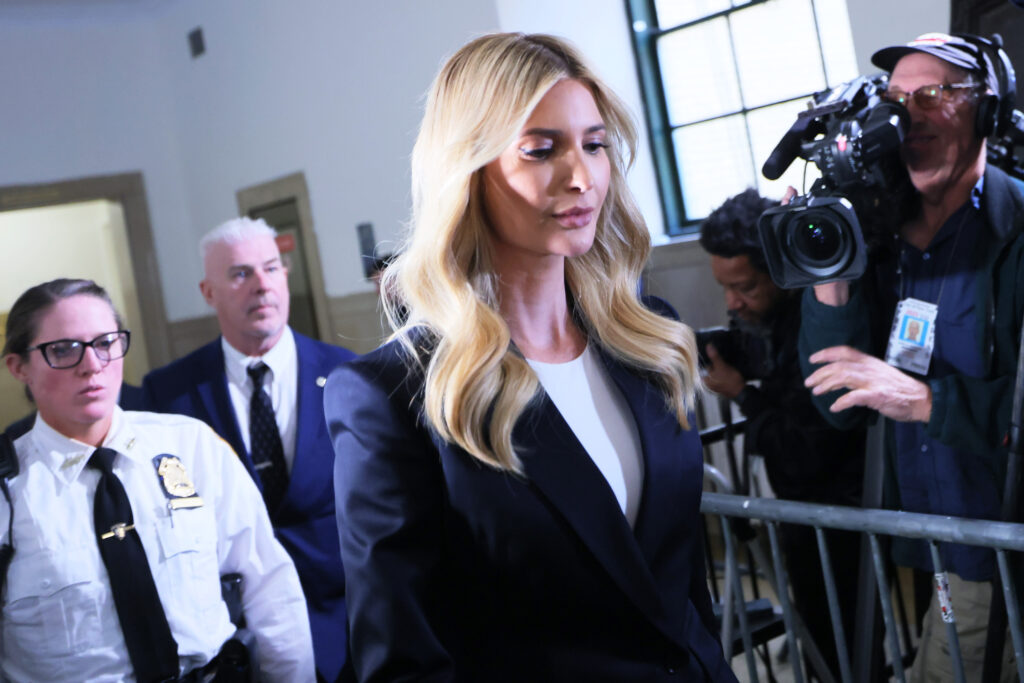
The relief came two days before Trump’s deadline to post the bond was about to expire. Trump had been rejected by over 30 bond companies, who were unwilling to front the exuberant sum of almost half a billion dollars. The court lowered the amount on the basis of the defense’s argument on irreparable harm. If Trump were to win the appeal, the harm that would have been caused to him by posting the bond, such as having to sell one of his properties at an inconvenient price, would be irreversible.
In the end, Trump’s $175 million bond was posted by Don Hankey, a California billionaire known as “the king of subprime car loans”.
Trump’s defense team will file their answer to the attorney general’s brief by the end of next week. The appeals court agreed to hold oral arguments on the case on September 26.
A clerk at the Appellate Division, First Judicial Department told the Sun on Thursday that a decision would take four to eight weeks “at minimum” after the oral arguments are heard, making it highly unlikely that a final ruling will come before the presidential election in November.
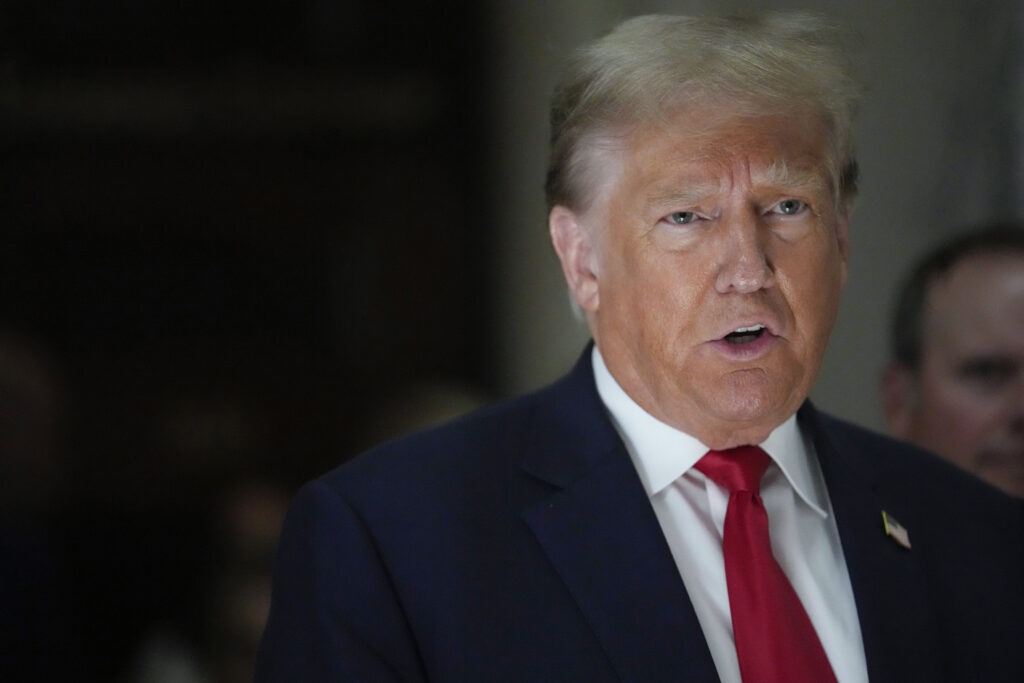
If Trump should lose the appeal, he can take the case to New York’s highest court, the Court of Appeals.

